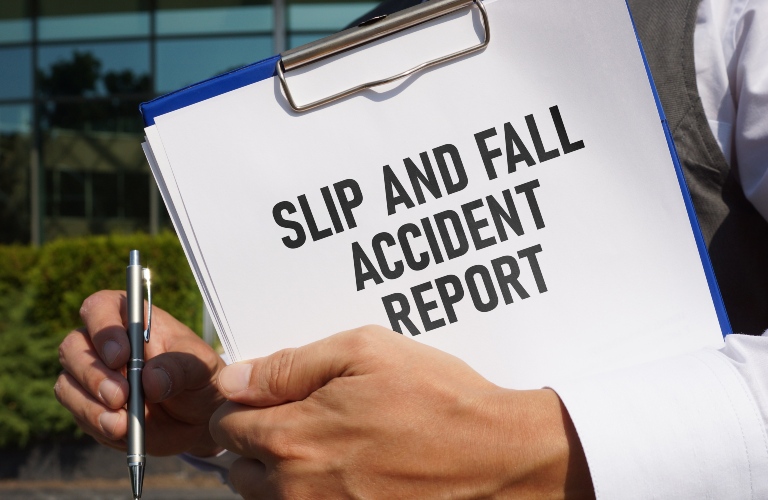How Illinois’ Comparative Negligence Law Affects Your Slip and Fall
You don’t expect to end up injured when you’re simply walking through a store or crossing a parking lot. But in a split second, a slippery floor or a hidden crack in the sidewalk can send you tumbling, and suddenly you’re facing medical bills, lost wages, and a whole lot of frustration.
Unfortunately, getting compensation isn’t always straightforward. In Illinois, who’s at fault—and by how much—can make a big difference in how much you actually recover. That’s because of something called comparative negligence, and if you’re not familiar with how it works, you could end up with far less than you deserve.
If you’ve been hurt in a slip and fall, don’t try to figure it out alone. Reach out to Attorney Michael J. Brennan for the guidance and support you need to protect your rights.
What Is Comparative Negligence?
When accidents happen, figuring out who’s to blame isn’t always simple. In many cases, both parties carry some responsibility. That’s exactly what Illinois’ comparative negligence law addresses.
Say you slip on a wet floor in a grocery store. The store may have failed to clean it up promptly or post a warning sign. But at the same time, maybe you were distracted by your phone and didn’t notice the hazard. Under Illinois law, both these facts matter.
Illinois uses what’s called modified comparative negligence. The rule is pretty straightforward: if you’re found to be 51% or more at fault for what happened, you can’t recover any money. But if you’re 50% or less at fault, you can still get compensatio, just not the full amount. Your settlement gets reduced based on your level of fault. So, if you were 30% responsible, your final payout would be reduced by 30%.
This system tries to make things fair, but it also means that every detail matters when determining who’s responsible for your injuries.
How This Impacts Your Slip and Fall Case
When you are injured in a slip and fall, figuring out who was responsible is not always easy. The final amount you receive often depends on how much of the blame is placed on you.
Picture this. You are walking through a store, and the floor has just been mopped. No sign warns you about the wet surface. That puts the store at fault. But if you were also glancing at your phone or wearing shoes with poor traction, the situation becomes more complicated. The store may still be mostly responsible, but some fault could be assigned to you as well.
Illinois law takes these details into account. If it is decided that you are 20 percent responsible for your fall, any settlement you receive would be reduced by 20 percent. For example, if your total damages come to fifty thousand dollars, you would end up receiving forty thousand dollars after the reduction.
Insurance companies know this system very well. They will search for any reason to argue that you share some of the blame, no matter how small. They may claim that you were distracted, that you should have noticed the danger, or that there were warnings you ignored.
Because of this, it is extremely important to gather as much evidence as possible. Photographs of the scene, statements from people who saw what happened, security camera footage, and immediate medical records can all strengthen your case. The more proof you have, the better your chances of receiving full and fair compensation.
Why Proving Liability Matters Even More

In a slip and fall case, every detail counts. Because your settlement can be reduced based on your share of fault, proving that the property owner was mostly or entirely responsible becomes even more important.
The stronger your evidence, the harder it is for insurance companies to shift blame onto you. Photos, witness accounts, maintenance records, and video footage can all help show exactly what happened and why you should not be held responsible for someone else’s negligence.
A solid case can mean the difference between a full settlement and walking away with much less than you deserve.
Speak With an Illinois Slip and Fall Lawyer
Slip and fall cases can get complicated quickly, especially with Illinois’ comparative negligence law in play. Even if the property owner was clearly at fault, insurance companies will often try to reduce your compensation by arguing that you share some of the blame.
That is why having an experienced attorney on your side can make all the difference. Attorney Michael J. Brennan understands how these cases work and knows how to build a strong claim that protects your rights. If you have been injured in a slip and fall accident, do not try to handle it alone. Contact Attorney Michael J. Brennan today to discuss your case and get the guidance you need.


